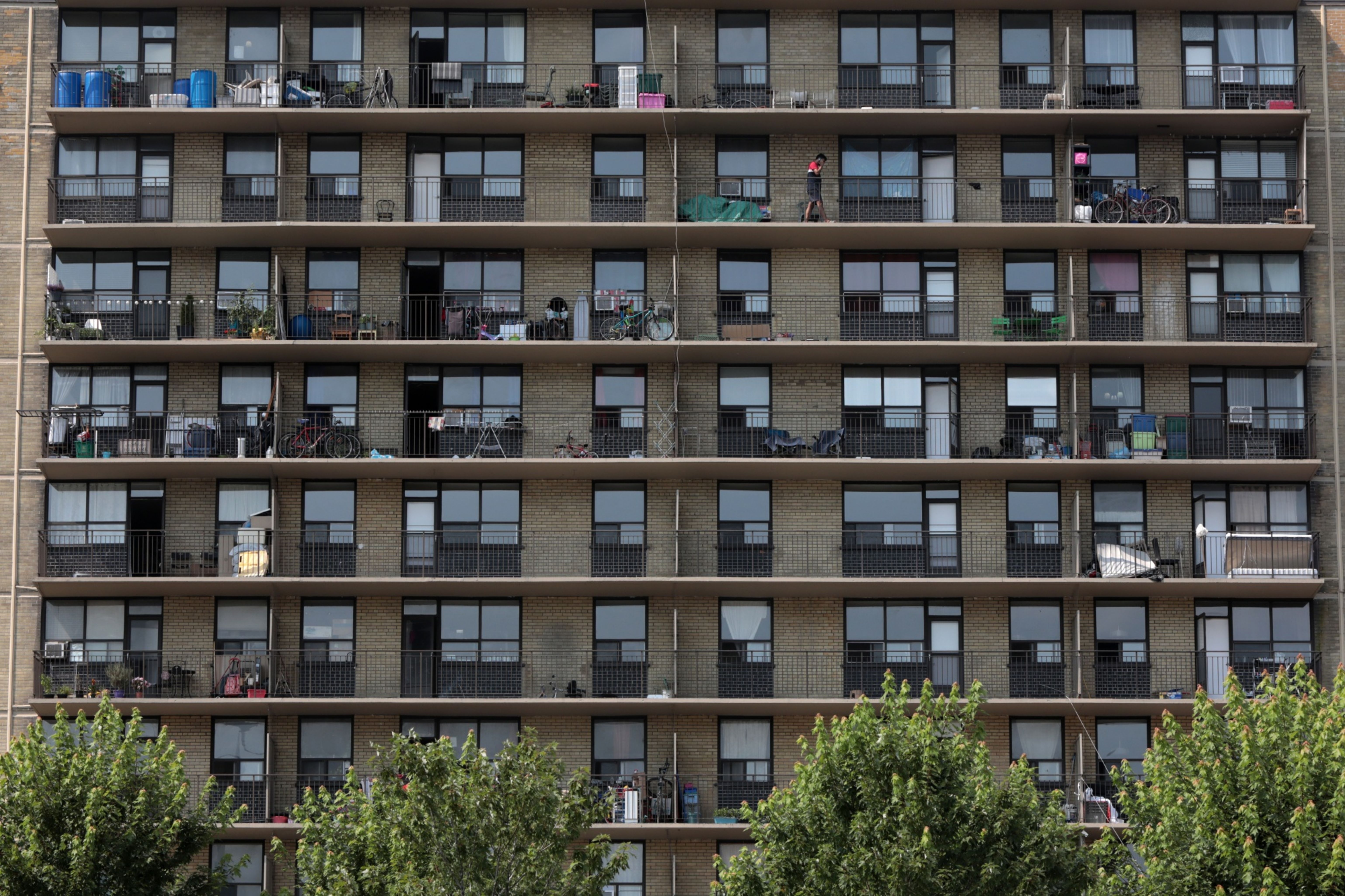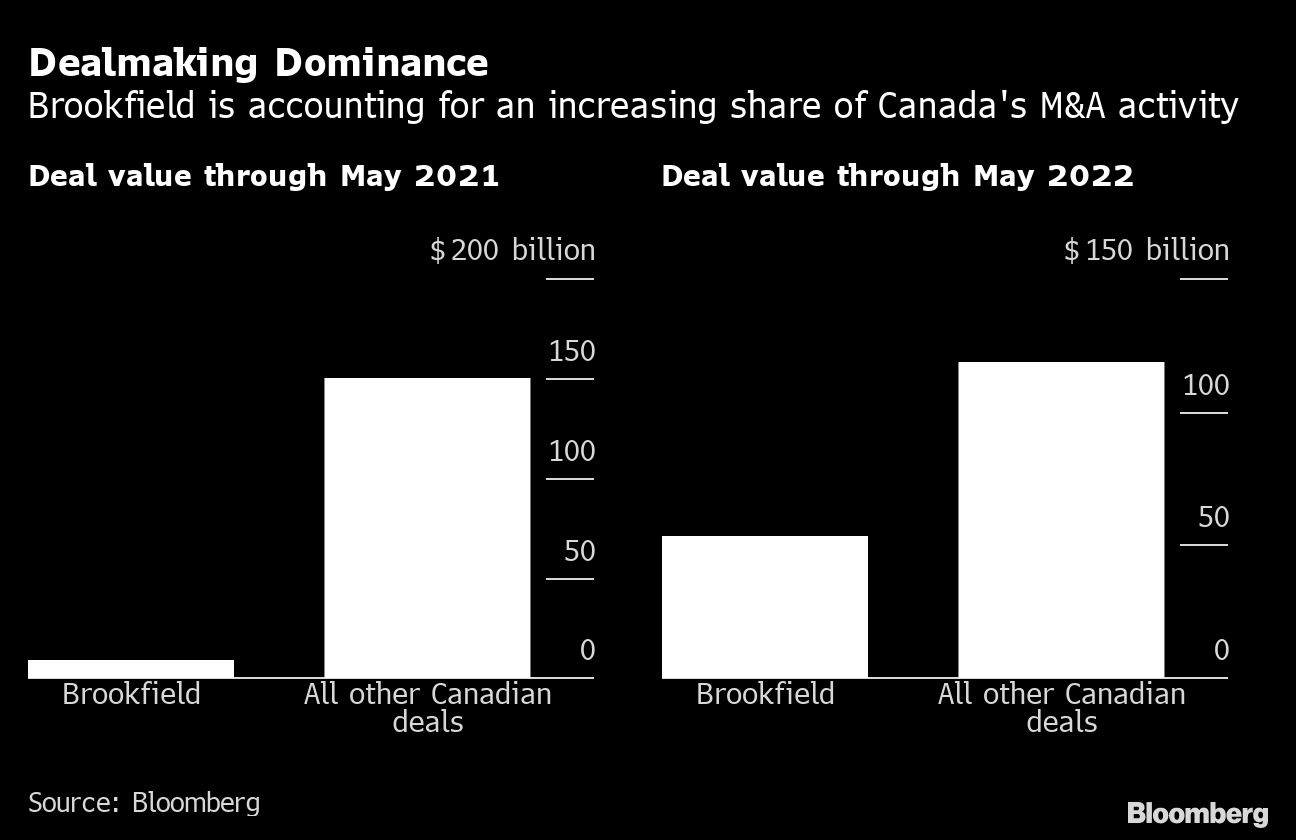Distressed deals pile up in Canada's once-booming housing market
, Bloomberg News
Zohal Habibi hadn’t even moved into her new home in the suburbs of Toronto when she started regretting the purchase. “We took a very bad decision,” she says.
It’s not about the house itself. She and her husband are excited about the extra space it’ll give them and their two young kids. The problem is the price they agreed to pay for the three-bedroom home in March: $920,000 (US$711,000).
Not long after, prices started to slide, and quickly. By the time their lender got around to appraising the house in May, it marked the value down to $800,000. A second appraisal a few weeks later was even grimmer -- $740,000.
Legally bound to the deal but no longer able to obtain a big enough loan to go through with it, the couple pleaded with the seller to nudge down the price. On Thursday, they closed at $810,000. “We didn’t know that the market would crash,” Habibi says.
All across greater Toronto, until recently the epicenter of a national housing boom with few peers anywhere, similar tales are piling up. The specifics can vary: from someone who bought a new house before selling their old one and now can’t get as much money as they were counting on, to situations like Habibi’s, where the appraisals that determine the maximum mortgage size come in far below the agreed-to price, to simple cases of buyer’s remorse.
But they all amount to one thing: Sellers must agree to a lower price, fast. That’s contributed to home values in metropolitan Toronto declining at an unusually rapid clip — the average selling price is down nearly 9 per cent in three months. And with the pain now spreading to other parts of Canada, such distress threatens to both accelerate and deepen a housing market decline that’s already underway. On Wednesday, the national benchmark home price posted its second straight monthly decline, with many of the small cities and towns that saw the biggest gains on the way up now correcting fast.
 An apartment building in the Parkdale neighborhood of Toronto. Longer-term mortgage rates have climbed swiftly as global bond markets respond to the spike in inflation. Photographer: Cole Burston/Bloomberg
An apartment building in the Parkdale neighborhood of Toronto. Longer-term mortgage rates have climbed swiftly as global bond markets respond to the spike in inflation. Photographer: Cole Burston/Bloomberg“A lot of the sellers in the market today are effectively distressed sellers,” said John Pasalis, who runs Toronto-based brokerage Realosophy Realty Inc. “This is putting a lot of downward pressure on prices.”
The reason for the market’s sudden turn is the unusually rapid increase in rates. To cool inflation from a 30-year high, the Bank of Canada has raised the benchmark rate from 0.25 per cent to 1.5 per cent since March, and opened the door to lifting it to 2.25 per cent next month. Longer-term mortgage rates have also climbed swiftly. Because the inflation fight is global, similar processes are playing out around the world. In the US, 30-year mortgage rates have nearly doubled in a year, reaching levels not seen since 2008, while in New Zealand houses are failing to sell at auction since the central bank started raising rates.
In Canada, though, the market downturn is starting to develop a momentum of its own, and flashing a warning to policy makers elsewhere trying to use shock therapy to bring their own wild housing markets to heel.
Because the real estate market operates like a food chain — first-time buyers purchase a starter home from someone who uses that money to buy something bigger from another person, who may buy something else in turn — a break in any of those links can cause problems all the way up. When one party can’t close, it can mean their counterparty can’t follow through on another deal, and the ensuing cash crunches can result in either the seller offloading their property fast for whatever they can get, or the buyer, assuming they can't renegotiate like Habibi did, having to borrow money at high interest to cover the shortfall. That’s the scenario that appears to be playing out in some parts of Canada now.
“I’ve seen an influx in cases that are beyond anything anybody’s ever seen,” said Greg Weedon, a Toronto-based real estate lawyer who says 20 files related to buyers unable to fulfill their purchase contracts have hit his desk in just the last two weeks. “I’ve restructured my whole business at this point to exclusively take in files related to buyers in breach. That’s going to be my business model going forward for the foreseeable future.”
Much of the distress playing out in the market today is down to buyers and sellers caught by the rapid turn in prices. Until March, when bidding wars were common in many regions, it made sense to buy before you sold, or make offers that weren’t conditional on bank appraisals and financing coming through. Now that the market is falling, buyers and sellers will likely adjust their strategies, and that will mean fewer people getting into distress in the same ways going forward.
But with the Bank of Canada signaling it’s not done raising rates, the next question will be whether everyone who did manage to close their deals can hold on.
 Workers at a condo building under construction in Lasalle, Quebec, Canada. Photographer: Christinne Muschi/Bloomberg
Workers at a condo building under construction in Lasalle, Quebec, Canada. Photographer: Christinne Muschi/BloombergThrough the pandemic, variable rate mortgages came to account for more than half of all new home loans as buyers sought the lowest rates they could get to afford the record high prices. Now, about 60 per cent of all the variable rate loans outstanding will see their monthly payments increase alongside the central bank rate, according to research from National Bank of Canada.
And real estate investors, who have come to account for about a fifth of the market, are also often highly leveraged through short-term or floating-rate debt. In its annual review of risks to Canada’s financial system this month, the central bank said such investors could be more likely to sell as their borrowing costs rise and house prices fall.
Susan White Livermore, a professional housing investor based in Barrie, Ontario, about an hour’s drive north of Toronto, says she sold four of her 20 properties at the beginning of the year as she started to “feel the fear coming in the market.” Now, White Livermore says she’s waiting to see how this correction plays out before she starts buying again.
“Once people have had to deal with the interest rates for a little while, there might be more deals,” she said. “I want to know that we’ve hit the bottom and stabilized before I start looking.”

